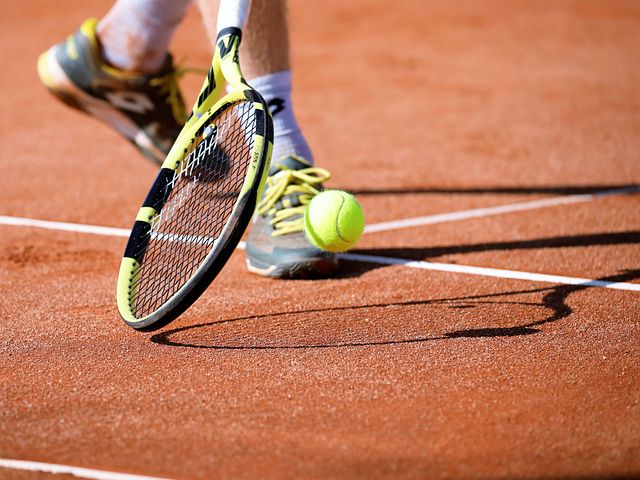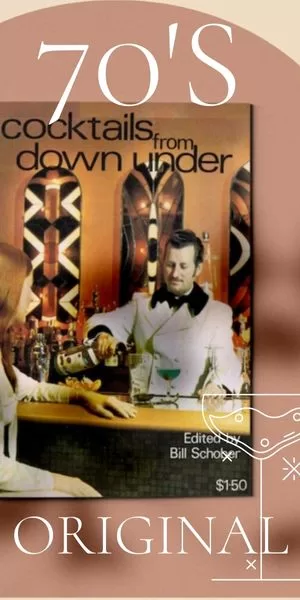DYLAN ALCOTT (OAM)
Born 4 December 1990, Dylan Martin Alcott, represents Australia as a Wheelchair Tennis Player, Basketballer, radio host at Triple J and motivational speaker.
Born with a tumour wrapping around his spinal cord, Alcott had to endure immediate surgery within the few weeks of his life or he certainly would have died. Sadly for the surgery to work, they couldn’t avoid also damaging his spinal cord. Alcott would survive, but would have to live in a wheelchair for the rest of his life.
After the surgery, Alcott spent pretty much the next three and a half years in and out of hospitals enduring another 15 or so operations. At three and a half years of age, things finally started looking up for Alcott and he considers himself very lucky as he’s hardly ventured through the doors of a hospital since.
Looking back over this time, Alcott couldn’t imagine what it would have been like for his parents Martin, Resie and older brother Zach.
Whilst they had to cater for his wheelchair access in and around the house and car, they were determined not to show any special treatment and Alcott credits his resilience and defiance in disabled sport to the way he was raised.
Like most children, Zach and Dylan often fought over little things, such as the Foxtel remote. Obviously, with two able legs to support him, Zach was quick and agile on his feet and could get away easier. When Zach put it down to go to the bathroom, Dylan would steal it, so Zach would place it on top of the fridge so Dylan couldn’t reach it.
Lots of people/children with disabilities kids especially, are wrapped in cotton wool by their families and friends because they are different. This isn’t aways in the best interest of the child, because when they go out into the real world and less people care about them, they’re lost and have no independence.
From Grade six, Alcott attended Brighton Grammar School. Alcott graduated Brighton Grammar school in 2008 as a prefect, and is now a member of their school Hall of Fame.
At age 10, Alcott started taking interest in sport. First he tried his hand at tennis, and then swimming, which by his own admission “he sucked at”.
At high school, Alcott was enjoying his comfortable lifestyle of eating and playing video games a little too much and became overweight. He became housebound not wanted to venture out at all. A couple of other students started calling him a cripple, and he started believing it. For a couple of years, the bullying was really rough.
Though funny enough, even though overweight, Alcott was great at sport, and when he worked out that he could advance in this field if he was fitter, he went on a diet and started to lose weight.
Alcott first had to put himself through a punishing training schedule: he would put extra books in the back of his chair and push himself the 2.5km to and from school in Brighton and ate nothing but rice crackers for six months.
In nine months, even though Alcott cant weigh himself, he would estimate that he lost around 20 kilos.
Now fifteen, he took up wheelchair basketball. Alcott made his debut for the rollers in the VISA paralympic world cup, and later they won a medal at the 2008 Summer Paralympics. He continued to hold his spot and was a member of the Rollers who travelled to the Beijing Paralympics in 2008. Now 17, and still completing high school, Alcott became the youngest wheelchair basketball gold medallist.
Alcott: “To be 17 and win gold at Beijing… well it just doesn’t get any better than that”.
His experience at the Paralympic Village was a real eye opener. Its here where a 159 nations plus two refugee converged and for Alcott, it was inspiring.
One particular moment has stayed with him to this very day:-
Alcott: “It’s the most amazing thing ever at the village. I remember the first time at the Beijing Games, I walked in and saw this guy from China eating fried rice with chopsticks that he was holding between his toes. That guy also swims 100m backstroke in just over one minute. He’s only six seconds slower than blokes with arms. It’s the best thing you’ll ever see: that mix of people that are all elite athletes”.
In 2009, Alcott accepted a scholarship at the University of Illinois in Champaign-Urbana, where he went on to win the College Championship division with the University of Illinois wheelchair basketball team. After one year of study, he decided to move back to Melbourne to train for the 2012 London Paralympic Games where as part of the Australian men’s wheelchair team, they took out silver.
Also in 2009, Alcott was added the the Queens Honours list, receiving an Order of Australia medal and the title (OAM)
In 2010, Alcott won gold at the World Championships.
In 2013, he reverted back to his first passion, wheelchair tennis and he was ranked inside the top five juniors in the world.
In 2014, Alcott won the New Zealand Open and later he defeated world number three Andy Lapthorne 7–5 6–1 at the British Open Wheelchair Tennis Championship. This win was his first Super Series crown. He then set his sights on the 2016 Rio Paralympics. Alcott was a Gold medal winner of both the wheelchair singles and doubles tennis at the 2016 Rio Paralympics.
A keen philanthropist, in 2014 Alcott broke the world record playing wheelchair tennis for 24 consecutive hours non-stop, setting a new world record and raising an incredible $100,000 for two charities.
In 2015 he defeated David Wagner in straight sets in the quad wheelchair Australian Open. By the end of 2015, Alcott was ranked number one after winning eight titles including two grand slam singles titles.
Alcott: “People often announce me as, ‘tennis player Dylan Alcott’, and I correct them and say, ‘I play wheelchair tennis’. I want to be honest, and it’s a positive thing. Like Paralympians that say they went to the Olympics. That’s wrong. You went to the Paralympics, and you should be proud of that.”
Alcott is ranked Number 1 in the world as a quad competitor in wheelchair tennis and is a four times Grand Slam winner.
Also in 2015, Alcott was awarded the Newcombe Medal (the first wheelchair athlete to win the highest individual award in Australian tennis history) and GQ Sportsman of the Year.
Later in 2016, he was honoured the title of Australian Paralympian of the year for his outstanding achievement at Rio.
Alcott finished studying at the University of Melbourne and now has a Commerce degree.
You would think that the thought of living in a wheelchair would motivate you to find a alternative, but not so for Alcott.
Alcott: “People send me stuff all the time about stem cell research and robotic legs and I’m not interested. Even if it did work, I love my life how it is. I wouldn’t have the opportunities I’ve had without being in a wheelchair. Why would I want to change that to be a run-of-the-mill person? Seriously, apart from getting up the stairs by yourself, and walking on the beach, there’s a way to do everything else.”
He currently works as a motivational speaker and as a radio host on Triple J. He constantly pinches himself about that one.
Alcott: “What 25-year-old with no experience gets his own radio show? It’s amazing. I really want to work in the media not only because I think I would enjoy it and be good at it, but also there are not enough people with disabilities in mainstream media”.
“I would love to get a regular gig on a show like The Project or The Today Show. I would also love to be on Postcards or Getaway because there are a lot of people in wheelchairs that love to travel. Twenty per cent of the population are disabled and they don’t know what they can do.
Since Alcott has secured a regular gig on The project” and also Channel 7 sports.
In his spare time, Alcott attends music festivals, and has become known for his ‘wheelchair crowdsurfing’. He also attends The Birdcage at the races where there are stairs everywhere.
Alcott has a specially modified car to get around where he uses hand controls instead of pedals. He was once asked “what’s that like” to which he repied: “I don’t know, what’s it like driving with feet”?
In 2017, Alcott launched the Dylan Alcott Foundation, a foundation created to help young Australian’s who are struggling to come to terms with their disabilities. The foundation aims to improve the quality of life of young people with disabilities by offering mentoring, scholarships and grants.
Alcott is also co-founder of “Get Skilled Access” a training provider educating corporates and governments on how to better understand and treat people with disabilities.
Alcott has a very impressive resume of recognition as follows;-
2009 – Order of Australia Medal (OAM)
2015 – Tennis Australia Newcombe Medal Nominee
2015 – Tennis Australia Most Outstanding Athlete with Disability
2015 – Victorian Institute of Sport Award of Excellence
2016 – Governor’s Award for Victorian Sportsperson of the Year
2016 – Finalist for ‘The Don Award’ Sport Australia Hall of Fame awards
2016 – Australian Paralympian of the Year
2016 – Australian Male Paralympian of the Year
2016 – Tennis Australia Awards Newcombe Medal
2016 – Tennis Australia shared Most Outstanding Athlete with Heath Davidson
2016 – Victorian Institute of Sport Elite Athlete with Disability Award
2017 – Young Australian of the Year (nominated)
In his private life, Alcott resides in Balaclava, Melbourne with live in girlfriend Kate Lawrence 31. The only adjustment the couple had to make was to expand the glass door in the shower, to allow for disability chair access. The apartment is on the 2nd floor, so if there is a lift breakdown, Alcott is rendered housebound till its fixed.
Alcott started dating Lawrence a Telstra employee three years ago, however have known each other for over six.
Ascott : Its one thing having a friend in a wheelchair, but when it comes to being intimate with someone in a wheelchair, it’s a completely different thing. A lot of people don’t even bother with relationships because they don’t want to be too vulnerable. I’ve got Lawrence and pulled a 10/10 to get her.
Alcott’s advice to young people with a disability is:
“The biggest thing is that for every one thing you can’t do, there are 10,000 others you can. For every one idiot to give you a hard time, there are 10,000 others worth your time.”


